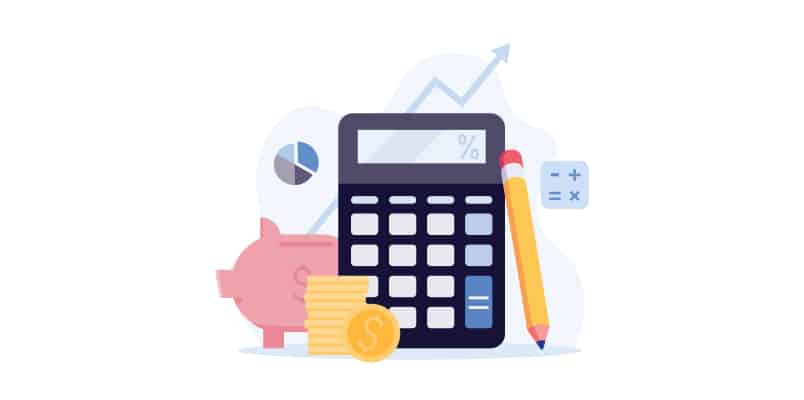Table of Contents
Introduction: Why Tax Tools Are Essential for Efficient Filing
Tax season can be stressful, but the right tax tools can make the process significantly easier. From tracking deductions to automating calculations and ensuring compliance with IRS regulations, tax tools are designed to help both individuals and businesses maximize savings, reduce errors, and streamline the entire filing process.
Whether you’re a first-time filer or a seasoned tax professional, understanding which tools are available and how to use them can take the hassle out of tax season. In this article, we’ll explore the top https://lawprof.us/ that can help you prepare and file your taxes with confidence.
1. Tax Preparation Software
One of the most popular and useful tax tools is tax preparation software, which simplifies the process of filing your taxes by guiding you through the various forms, deductions, and credits. These tools are user-friendly and designed for both individuals and businesses.
Key Features of Tax Preparation Software:
-
Step-by-step guidance: Most software options walk you through the process with simple questions, ensuring you don’t miss anything important.
-
Tax deductions and credits: The software can automatically calculate the deductions and credits you’re eligible for, helping maximize your refund or reduce your liability.
-
E-filing: Tax software allows you to e-file your return directly with the IRS, speeding up processing and refund times.
-
Error checking: These tools often include built-in checks for common errors, such as math mistakes or missing information, helping ensure your return is accurate.
Popular Tax Preparation Software:
-
TurboTax: Known for its easy-to-use interface and support for a wide range of tax situations, including freelancers and small business owners.
-
H&R Block: Offers both free and paid versions, with live support options for more complex tax needs.
-
TaxAct: A budget-friendly option that still provides robust tools for filing both personal and business taxes.
-
FreeTaxUSA: A cost-effective solution for simple tax returns, offering both free filing and paid versions with extra features.
2. Tax Calculators
Tax calculators are another essential tool to have at your disposal. These tools help estimate your potential tax liability or refund before you even file. They’re particularly useful for individuals and businesses who want to get a sense of where they stand financially before beginning the filing process.
Common Types of Tax Calculators:
-
Income Tax Calculator: Helps estimate the amount of tax you owe based on your income, filing status, and other factors.
-
Self-Employment Tax Calculator: For freelancers, independent contractors, or small business owners, these calculators determine how much self-employment tax you’ll owe.
-
Withholding Calculator: Ensures that you’re having the correct amount of tax withheld from your paycheck throughout the year.
-
Capital Gains Tax Calculator: Helps calculate the taxes on your investments or property sales, factoring in long-term versus short-term gains.
-
Tax Refund Estimator: Gives you an idea of your refund based on the deductions and credits you’re eligible for.
Example Tools:
-
IRS Withholding Calculator: Available on the IRS website, this free tool helps employees determine whether they need to adjust their withholding.
-
SmartAsset Tax Calculator: A comprehensive tool for estimating your tax refund or liability based on your financial situation.
3. Deduction Finders and Tax Credit Tools
Maximizing your tax deductions and tax credits is crucial to minimizing your tax liability or maximizing your refund. Various tools are available to help identify the deductions and credits that apply to your specific situation.
Common Tax Deductions and Credits:
-
Standard deduction vs. itemized deductions: These tools can help you decide which option will benefit you the most.
-
Child Tax Credit and Earned Income Tax Credit (EITC): These tools help you calculate whether you’re eligible for popular credits like the Child Tax Credit, which can significantly reduce your taxes.
-
Homeownership deductions: Tools can identify deductions related to mortgage interest, property taxes, and home office expenses.
-
Education credits: Some tools assist with calculating eligibility for credits like the American Opportunity Tax Credit or Lifetime Learning Credit.
Examples of Deduction and Credit Tools:
-
TaxSlayer Deductions Finder: A tool that helps you discover tax deductions and credits you might qualify for.
-
Credit Karma Tax: Provides tax guidance and identifies credits and deductions to help boost your refund.
4. Accounting Software for Small Businesses
For business owners, accounting software is one of the most valuable tax tools available. These platforms help track income and expenses, manage invoices, and automatically generate financial reports—all of which are crucial for accurate tax filing.
Benefits of Accounting Software:
-
Expense tracking: Keep track of every expense to ensure you can claim all allowable business deductions.
-
Invoicing: Create and send invoices to clients while tracking payments and ensuring timely collections.
-
Tax reports: Generate reports that help you calculate your business’s taxable income and identify potential deductions for things like business meals, travel, and office supplies.
Popular Accounting Software for Tax Preparation:
-
QuickBooks: Widely used by small business owners, QuickBooks integrates with tax tools and simplifies financial management.
-
Xero: An intuitive tool for managing accounting, payroll, and tax filing for small businesses.
-
FreshBooks: Focuses on invoicing and expense tracking, with tax features for freelancers and small business owners.
5. IRS Online Tools
The IRS provides a suite of online tools to help taxpayers manage their taxes, check on refunds, and even make payments. These tools are free and can be incredibly useful for individuals or businesses dealing with tax filing.
Key IRS Online Tools:
-
IRS Direct Pay: A secure way to make payments directly to the IRS from your bank account.
-
Where’s My Refund?: A tool for tracking the status of your refund after you’ve filed.
-
Online Payment Agreement: Allows individuals and businesses to set up a payment plan for overdue taxes.
6. Tax Filing Checklists
Tax checklists are invaluable tools to ensure you don’t miss any important documents or deductions. They provide a step-by-step guide to help you gather everything you need for filing.
Key Items Often Found on Tax Filing Checklists:
-
W-2s and 1099s
-
Business expenses and receipts
-
Mortgage interest statements
-
Retirement account contributions
-
Social Security numbers for dependents
-
Proof of educational expenses for credits
You can find free tax checklists online, or many tax software programs include them as part of the filing process.
Final Thoughts: Choose the Right Tax Tools for Your Needs
With the right tools, you can make tax season a lot less stressful. Whether you’re an individual looking to maximize your refund, a small business owner needing accurate records, or someone managing a complex tax situation, there are a variety of tax tools to suit your needs.
From tax preparation software to deduction finders and online calculators, these tools ensure that you’re prepared, accurate, and compliant when filing your taxes.





